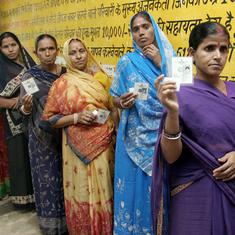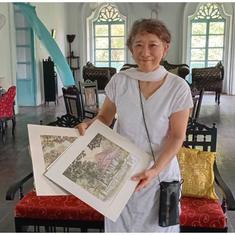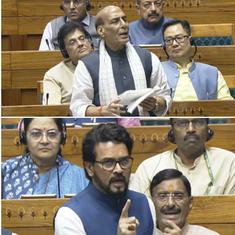YouTube channel booked for alleging ‘mob lynching’ in Uttar Pradesh’s Shamli
This was the second FIR relating to claims that had been made on social media about a Muslim man being lynched on Thursday.

The Uttar Pradesh Police on Sunday booked YouTube channel Hindustani Media for alleging in a video that a Muslim man had been lynched by a mob in the state’s Shamli district.
Rajendra Prasad Vishishth, the station house officer of the Thana Bhawan police station, confirmed to Scroll that a first information report had been filed against the YouTube-based news channel.
The report quoted a complainant as saying that the channel had published a video presenting wrong information and made allegations of mob lynching, which had the potential to provoke communal disharmony.
The channel was booked for promoting enmity between groups under section 196 of the Bharatiya Nyaya Sanhita and circulating false information to promote enmity, under section 353(2).
On Friday, the channel posted a video claiming that a man, Firoz Qureshi, had been beaten to death by a mob on suspicion of theft in the Jalalabad town of Shamli district.
The channel, which has more than three lakh subscribers, is run by Sadaf Kamran, a journalist from Bihar. It focuses on matters related to the Muslim community.
This is the second report filed in the matter in connection with the allegations of mob lynching.
On Saturday, the police booked journalists Zakir Ali Tyagi, Wasim Akram Tyagi and three others for alleging on social media that Qureshi had been lynched by a mob on Thursday.
The police had on Friday filed a separate first information report in connection with Qureshi’s death based on his family’s complaint, invoking charges of culpable homicide not amounting to murder against unknown persons under Section 105 of the Bharatiya Nyaya Sanhita.
The family complained that Qureshi had been beaten up by a group of men, leading to his death. The family said that he had gone to the Aryanagar area for some work where he was beaten up. Qureshi was rescued by some men and he died at home at 11 pm, the family said.
On Sunday, Shamli Superintendent of Police Abhishek told Scroll that Qureshi’s death “was not a case of mob lynching.”
“The man [Qureshi] was beaten up by a few men when he entered their home,” the superintendent of police said. “But he died at his [own] home. We have also conducted a post-mortem.”
Denying the allegations that Qureshi had been lynched, Shamli Police claimed in a social media post on Sunday that the allegations were made with “sole intent to provoke communal hatred without any consideration for facts on the ground”.
Responding to the first information report filed against his channel, Karman said that he was “shocked” by the police action.
“I prepared the video report based on what the family of the victim had told the police and the FIR, which names two people,” Kamran told Scroll. “Now I am not able to understand that if I reported this news, why has action been taken against me.”
Kamran said that he came to know about the report against his channel through a friend and that the police had not approached him thus far.
The Digipub News India Foundation, an association of digital-only news outlets, on Monday condemned the police action against the journalists and urged the Uttar Pradesh Police to “immediately rescind” the case.
“Registering an FIR against journalists sharing information in the public interest is a grave overreach and misuse of criminal laws and an assault on press freedom that has a chilling effect,” the news association said. “While the police has contested that the nature of the incident, saying it was not communal in nature, there is no cause for filing cases against journalists who are putting out the information available to them.”
The Press Club of India and the Indian Women’s Press Corps also condemned the police action against Zakir Ali Tyagi and Wasim Akram Tyagi and demanded the withdrawal of the FIR against them.
“Reporting publicly available information, irrespective of the medium of the message, qualifies as bonafide journalism,” the two press bodies said in a statement on Monday. “Such arbitrary application of BNS [Bharatiya Nyaya Sanhita] tantamount to intimidation of journalists in direct violation of Article 19(1)(A) of the Constitution.”









